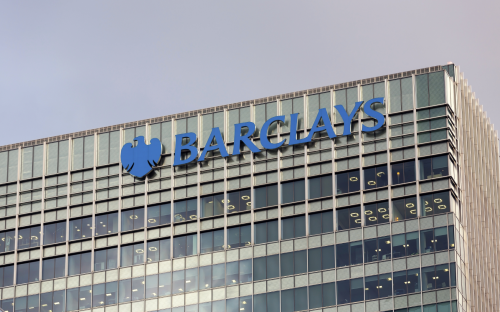Banking recruiters are returning to the global financial centres of New York, London and Hong Kong as the economy picks up a head of steam, lifting pay and bonuses at investment banks.
A buoyant mergers and acquisitions marketplace has coincided with a heathy start-up sector producing a stream of IPOs. Together, these trends are spurring potentially the strongest recruitment cycle at banks since Lehman Brothers collapsed, and the first rise in investment bank starting salaries in five years.
“In New York, the banks have come back,” says Roxanne Hori, associate dean of career services and corporate relations at NYU Stern. A stone’s throw away from Wall Street, the business school expects 27% of its MBAs to join investment banks this year.
The bulge bracket banks such as Citigroup, JP Morgan Chase and Bank of America Merrill Lynch are hiring the most. But the recruitment wheels are also spinning at smaller firms.
“Students are not only looking at bulge bracket firms but also have opportunities at middle market firms and at smaller boutiques,” says Regina Resnick, associate dean for the Career Management Center at New York’s Columbia Business School.
This is evident in the growth of mid-tier firms such as Wells Fargo, which has broken into the global top-10 investment banking fee-earner list — ahead of Credit Suisse and Deutsche Bank. Boutiques also have an increasing presence in investment banking, illustrated by the rapid growth of Robey Warshaw, set up by the former heads of UBS’ and Morgan Stanley’s investment banks.
“Hiring is active across all sizes of banking organizations,” says NYU Stern’s Roxanne.
Yet more students are opting to ply their trade in other areas of finance, such as wealth management, private equity and hedge funds.
Jacques Olivier, program director of the Masters in Finance at HEC Paris, says the business school is seeing students transitioning from investment banking to the so called buy-side much faster than before the crisis.
“There are fewer students going into sales and trading and more students going into M&A and strategic consulting,” he says.
In London, the recruitment market is no less buoyant. For example, at London Business School, 40% of full-time students are employed in the financial services sector.
“Banking recruitment is very strong,” says Christian Dummett, head of finance Careers at LBS, with the number of MBA level internship offers this year significantly higher than in 2014. “The key driver is a marked increase in M&A activity globally.”
This is despite the relative decay of UK investment banking, with Barclays, RBS, Lloyds and HSBC all announcing cuts in investment bank headcount over the past year. Investment banks’ front office headcount continued to shrink in the first quarter of 2015, down 8% from last year, according to figures from Coalition, the London based research firm.
Instead, experts point to an increase in hiring for associate level posts, which can be filled by undergraduates and pre-experience masters graduates, who command less pay than MBAs.
“The trend in the industry has for some time now been a shift away from hiring MBAs into investment banking or sales and trading jobs,” says Mark Davies, employer relations manager at Imperial College Business School in London.
Finance is having to compete with the more entrepreneurial working environments of technology firms like Google and Amazon, he says.
“Banking and finance continue to be popular and highly competitive career choices,” says Sarah Juillet, director of postgraduate careers at London’s Cass Business School. “However we have seen a growing interest in careers in entrepreneurship, technology and healthcare, [while] consulting continues to be appealing.”
The trend of hiring pre-experience candidates has been pronounced in the City but has spread to the investment banking behemoths on Wall Street.
Jennifer Boynton, assistant dean for MBA career management at Georgetown’s McDonough School of Business in the US, confirms this focus.
“In investment banking, firms are working hard to retain undergraduate hires and make them the primary source of junior talent,” she says. “But there is still a need to hire MBAs at the associate level.”
Meanwhile, as China’s financial sector continues to open up to global capital markets, there is growing demand for talent in Hong Kong.
The former British colony has benefited from China’s frothy — although now cooling — stock markets and the opening of the Shanghai-Hong Kong Stock Connect.
Lawrence Chan, a director at CUHK Business School in Hong Kong, says regardless of the recent market volatility there has been recruitment demand from boutique advisory firms, asset managers and private banks.
“There are more and more Chinese financial institutions which are listing in Hong Kong, and they are looking for talent,” he says. Some 40% of CUHK graduates work in finance; 20% in investment banking.
The bulge bracket global banks are also setting their sights on China, with the likes of HSBC and Société Générale shifting resources to Asian markets. As such, Chinese language skills are a hot commodity. “Chinese is a distinctive advantage,” CUHK’s Lawrence says. Employers have also sought to hire students who are able to speak Indonesian or Vietnamese, he says.
There are headwinds, however. China’s stock rout has dented confidence and called into question the role of the state in propping up the market. Regulation continues to bite big banks too, in all global financial centres. Six global banks were recently fined $5.6 billion to settle allegations that they rigged foreign exchange markets. Bankers have also come under pressure on pay, with caps imposed on salary across the EU, hitting the City particularly hard.
“Job prospects for City workers are improving,” says Adam Jackson at London recruiter Astbury Marsden. “However challenges and uncertainties remain — notably the outcome of the EU referendum and the ratcheting up of regulatory requirements.”
Nonetheless there is a rising tide of optimism in banking sectors everywhere. Astbury Marsden points out that the number of new jobs in the City soared by more than 50% year-on-year in May. The latest PwC/CBI financial services survey, published in June, shows banks’ optimism remains strong after hitting a 15-month high in March.
“In many respects, the banks have recovered from the financial crisis,” says NYU Stern’s Roxanne.
Student Reviews
Bayes Business School
RECAPTHA :
45
07
52
46








